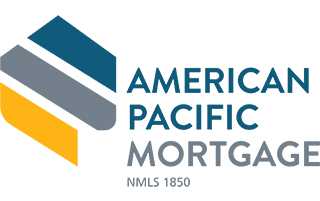Advantages And Disadvantages Of An FHA Loan And Why It Matters
If you want to become a homeowner, odds are you’ll need to take out a home loan. Although you could try to get a traditional home mortgage through any number of lenders, you might want to consider looking into alternatives, such as federally backed loans like the FHA (Federal Housing Authority) loan. But consider all the benefits as well as the potential drawbacks of your mortgage options, including those of an FHA loan, before you apply.
What Is An FHA Loan?
FHA loans are loans backed by the federal government. They are issued through approved lenders and qualifying is easier because they are insured by the government. FHA loans allow borrowers who may not have qualified for a traditional mortgage to obtain a home loan. The risk is reduced for lenders who issue FHA loans, so if a borrower defaults on their FHA loan, the lender will be covered since FHA loans are insured by the federal government. Keeping that in mind, FHA loans are a great option for borrowers who may not have the strongest financial records.
Advantages Of The FHA Loan
Borrowers will find that there are a number of other advantages to taking out an FHA loan besides the ease in qualifying. These include the following:
Your Credit Report Options
Lenders check the credit reports of borrowers to determine how financially responsible and how financially capable they are of making loan payments on time and in full. One of the most important elements of the credit report is the credit score, which provides lenders with an overall view of how creditworthy a borrower is. For conventional home loans, most lenders require borrowers to have a credit score of at least 640. Credit score requirements are much less restrictive when it comes to FHA loans. Borrowers who have a credit score of 500 or above will still qualify for an FHA loan–and those with a credit score of at least 580 will be able to access maximum financing.
Another thing lenders look for when pursuing your credit report is your debt-to-income ratio. This shows them how much money you make versus how much debt you have. If the debt-to-income ratio is too large, they’ll determine that you will not be able to take on more debt via a home loan. The highest debt-to-income ratio typically accepted by lenders on a conventional loan is 43 percent, although they do take into account certain additional factors when looking at a borrower’s debt-to-income ratio as well, such as any cash reserves they might have as well as high credit scores. With FHA loans, the maximum debt-to-income ratio accepted is 50 percent (counting the loan).
Loan Ratios
The loan-to-value (LTV) ratio is the amount of the loan measured against the actual value of the house (determined by a professional appraisal of the property). The actual ratio is calculated by dividing the loan amount by the home’s appraised value. The LTV is dependent on how much of a down payment you make and helps lenders to determine how much of a risk the loan presents. The higher the LTV is, the more of a risk the loan is deemed. For conventional loans, the LTV limit is usually 95 percent. However, for FHA loans, the LTV limit is 97 percent. This means that FHA will finance a larger loan amount.
Affordable Interest Rates
One of the biggest benefits of FHA loans is that the interest rate charged on the mortgage is the same no matter what your credit score is. FHA loans can save you a significant amount of money on your mortgage interest when compared to conventional loans, which base their interest rates on a variety of factors, including how big of a down payment you make as well as how high your credit score is.
Disadvantages To Be Aware Of
For borrowers who may have had some financial trouble in the past, an FHA loan might seem like an incredible alternative to a conventional loan. However, even though an FHA loan has its share of benefits, there are a few potential drawbacks that you need to be aware of. The following are a few of the disadvantages of an FHA loan:
Mortgage Payment Frequency
When it comes to how long you have to pay off your mortgage, FHA loans only provide two duration options–15-year and 30-year terms. Although 15-year and 30-year terms are the most common for conventional mortgages, they often offer more options such as 10-year, 20-year, and even 40-year terms.
Strict Criteria and Requirements
FHA loans have much stricter criteria and requirements for the type of property you can invest in. For example, the FHA refuses to finance any properties that have electrical, structural, foundational, plumbing, or wiring issues. A home inspection is required and the requirements for that inspection will be much more rigorous compared to a conventional mortgage, which has no inspection requirements.
Because of these restrictions, it also means that you can’t buy a fixer-upper with the intention of renovating or repairing issues yourself. The seller must perform any issues discovered during the inspection or the FHA won’t approve the loan. This can also be problematic if there’s more than one bidder for the house: the seller is more likely to accept bids from someone using a conventional loan since they won’t have to go through the hassle of meeting the FHA’s requirements.
Limited Loan Choices
There are many different types of conventional home loans that you can take out, but only a limited number of FHA loans. You’ll only be able to take out an FHA loan for owner-occupied residences. You can’t use an FHA loan for second homes, land, or investment properties, and you can only choose from fixed-rate and one adjustable-rate program.
Limitations on Loan Amount Allowed
You can take out a mortgage for an expensive house if a lender deems you creditworthy. However, if you decide to apply for an FHA loan, be aware that there are limitations on how much money you can borrow on FHA loans. Loan limitations do vary a little from county to county based on the cost of living. Loan limitations also go up regularly to keep up with the cost of living. In 2019, the loan limit ceiling is $726,525 in high-cost areas, while the floor is $317,827.
The views, articles, postings, and other information listed on this website are personal and do not necessarily represent the opinion or the position of American Pacific Mortgage Corporation or US Lending Company.
* For loan examples and more information visit our disclosure page at https://www.uslendingcompany.com/disclosures/





